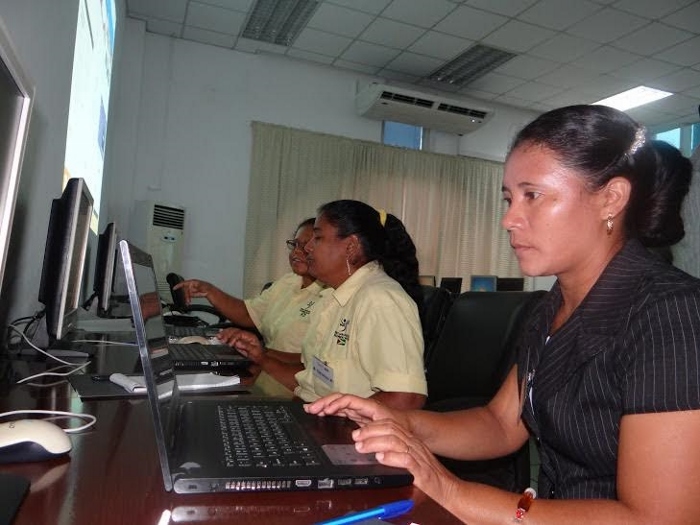The IICA Representative in Guyana provided an overview of the Institute’s main achievements in the previous year.
Guyana. The Inter-American Institute for Cooperation on Agriculture (IICA) implemented in Guyana its Flagship Projects focusing on the areas of resilience, inclusion and family agriculture, which resulted in yet another year of successful contributions to the agricultural sector, specifically with regards to the development of small and medium-size entrepreneurs, including youth and women.

Wilmot Garnett, IICA Representative in that country, provided an overview of these contributions to a local news agency.
Garnett also stated that the initiatives funded by the European Union, such as the Agricultural Policy Program (APP) and the Sanitary and Phytosanitary (SPS) Measures Program, added to the success of IICA’s contributions to the Guyanese agricultural sector.
The Delegation’s main contributions include developing production protocols for legumes and cassava; creating and implementing capacity-building instruments in farmers’ organizations; strengthening the capacities of the Resource Development and Planning Division of the Ministry of Agriculture; and creating and managing value chain platforms for small ruminants and cassava.
Furthermore, the Flagship Projects contributed to rural development in the Tri-Lake community of Tapakuma, in Region 2, among other places. The Rising Sun Agro-Processing Facility, which processes cassava and is located in the village of Saint Denny, was also put back into operation, representing a major achievement.
Rural communities located in areas where cassava is planted are being supported by this processing facility, through the processing of cassava into a variety of products. Additionally, the Tapakuma Cassava Processing Facility now serves as a community-based income generating model for other small value-added operations in the country.
The IICA Delegation in Guyana also provided support to local beekeepers by appointing an expert to provide training on a new and proven beekeeping method for increasing the productivity and profitability of their businesses.
The IICA Delegation also promoted the use of protected agriculture technology through collaboration with several partners, including St. Stanislaus College Farm, Partners of the Americas, Caribbean and African Self Reliance International (CASRI), the National Agricultural Research and Extension Institute (NAREI), various United Nations agencies, the Food and Agriculture Organization (FAO), the Ministry of Agriculture, the Ministry of Education, and the Caribbean Agricultural Research and Development Institute (CARDI).
With over one hundred protected agriculture structures throughout Guyana’s ten administrative regions, IICA collaborated with CARDI to research and evaluate crop production, utilizing an improved high tunnel structure, and performing cost/benefit analyses for selected crops.
IICA also supported the use of biogas technology as an energy alternative to fossil fuels. Guyana School of Agriculture (GSA) also benefited from this technology; a biogas unit was installed at the school’s processing facility, which now utilizes methane gas as its main energy source. This in turn has significantly reduced GSA’s energy costs and its dependence on propane gas.
With support from the Delegation, the Caribbean Network of Rural Women Producers (CANROP), a group consisting of twenty women from the Bahamas, Guyana, Jamaica, Saint Lucia, and Trinidad and Tobago, learned how to create and manage a communication platform to introduce their companies and products to the international community via the Internet.
IICA celebrated its 40th anniversary in Guyana last year. On that occasion, Noel Holder, Minister of Agriculture of Guyana, stated that “the support provided over the years by IICA has significantly impacted Guyana’s agricultural development agenda, for which the country is grateful.”
Garnett stated that the Delegation will continue to implement measures to ensure an even greater impact on Guyana’s agricultural sector in 2016.
With information from the Guyana Chronicle.
More information:











